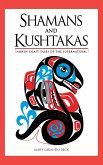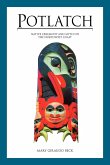A thoughtful examination of how a shared sense of place evolves over time To visiting geologists Black Rock, New Mexico, is a basaltic escarpment and an ideal natural laboratory. To hospital workers Black Rock is a picturesque place to earn a living. To the Zuni the mesas, arroyos, and the rock itself are a stage on which the passion of their elders is relived. William A. Dodge ex-plores how a shared sense of place evolves over time and through multi-ple cultures that claim the landscape. Through stories told over many generations, this landscape has given the Zuni an understand-ing of how they came to be in this world. More recently, paleogeographers have studied the rocks and landforms to better understand the world as it once was. Archaeologists have conducted research on ancestral Zuni sites in the vicinity of Black Rock to explore the cultural history of the region. In addition, the Anglo-American employees of the Bureau of Indian Affairs came to Black Rock to advance the federal Indian policy of assimilation and brought with them their own sense of place. Black Rock has been an educational complex, an agency town, and an Anglo community. Today it is a health care center, commercial zone, and multiethnic subdivision. By describing the dramatic changes that took place at Black Rock during the twentieth century, Dodge deftly weaves a story of how the cultural landscape of this community reflected changes in government policy and how the Zunis themselves, through the policy of Indian self-determination, eventually gave new meanings to this ancient landscape. William A. Dodge is a cultural historian at Van Citters Historic Preservation LLC in Albuquerque, New Mexico. He has worked for over thirty years in southwestern cultural resources and was director of the Zuni Archaeology Program at the Pueblo of Zuni.
Hinweis: Dieser Artikel kann nur an eine deutsche Lieferadresse ausgeliefert werden.
Hinweis: Dieser Artikel kann nur an eine deutsche Lieferadresse ausgeliefert werden.








